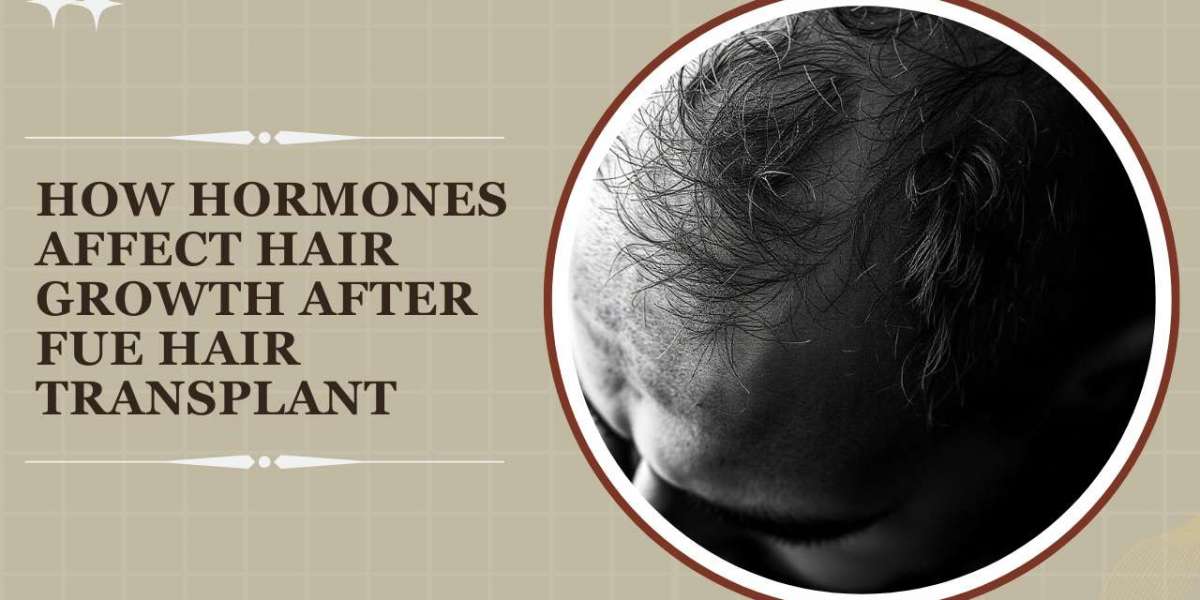Hair loss is a prevalent issue that can greatly impact self-esteem and overall quality of life. Many individuals turn to Follicular Unit Extraction (FUE) hair transplant techniques as a possible solution for restoring hair. While FUE is renowned for its effectiveness, the procedure's success extends beyond surgical techniques and is profoundly influenced by hormonal factors. Understanding how hormones affect hair development after a FUE hair transplant is crucial for patients looking to optimize their results.
Understanding Hair Growth and Its Phases
To comprehend how hormones affect hair growth after FUE hair transplant, understanding the hair growth cycle is essential. Hair growth occurs in three distinct phases:
- Anagen Phase: This is the active growth phase, during which hair follicles produce new hair. Depending on individual factors, including genetics and hormonal balance, this phase can last for several years.
- Catagen Phase: This transitional phase lasts a few weeks and marks the end of active growth. The hair follicles begin to shrink, and hair growth slows down.
- Telogen Phase: The resting phase can last several months. At this stage, the hair is dormant and will eventually shed, allowing new hair growth.
The length and health of these phases directly influence hair density and quality, with hormones playing a crucial role throughout.
The Role of Hormones in Hair Growth
Hormones are biochemical messengers that regulate numerous physiological processes, including hair growth. The main hormones that influence hair growth include:
- Androgens
Androgens, which include testosterone and its derivative dihydrotestosterone (DHT), are the most critical hormones concerning hair growth. While androgens are essential for normal hair development, excess levels, particularly DHT, can lead to hair thinning and loss, especially in those genetically predisposed to androgenetic alopecia (male and female pattern baldness). - Estrogen
Estrogens are often considered female hormones, although they are present in both sexes. Estrogen promotes hair growth by prolonging the anagen phase and reducing hair follicle shrinkage. Women usually experience thicker hair during pregnancy due to increased estrogen levels, but this can change postpartum when estrogen levels drop. - Thyroid Hormones
Thyroid hormones have a substantial impact on metabolism and energy levels, as well as being essential to the hair growth cycle. Hypothyroidism (an underactive thyroid) can cause hair thinning and loss, whereas hyperthyroidism (an overactive thyroid) can result in rapid hair loss. Maintaining a healthy thyroid function is critical for successful hair growth following FUE. - Cortisol
Cortisol, commonly called the stress hormone, is made by the adrenal glands. Elevated cortisol levels, often resulting from chronic stress, can hinder hair growth and lead to hair loss. Therefore, managing stress is crucial for achieving optimal hair growth post-transplant. - Insulin and Insulin-like Growth Factor (IGF)
Insulin helps regulate blood sugar levels, and its resistance can negatively impact hair growth. On the other hand, IGF plays a role in the anagen phase, promoting hair follicle growth. A healthy balance of these hormones supports hair restoration after FUE.
How Hormones Affect Hair Growth After FUE Hair Transplant
Now that we understand the hormones involved in hair growth, we must explore how these hormones particularly affect hair growth after an FUE hair transplant. Here are several vital aspects to consider:
- Anagen Phase Extension
After an FUE hair transplant, the success of the newly implanted hair follicles heavily relies on the anagen phase. Hormones such as estrogen and IGF can significantly extend this phase, promoting new hair growth. Ensuring a healthy hormonal environment post-surgery can enhance hair density and overall results. - Regulation of Androgen Levels
Monitoring androgen levels, particularly DHT, is crucial for people with a genetic predisposition to androgenetic alopecia. Elevated DHT can cause hair follicles to shrink and weaken, resulting in hair thinning. Medications like finasteride may be prescribed to inhibit DHT production, helping hair growth after the transplant. - Thyroid Function Monitoring
Thyroid hormones are essential for overall health and significantly influence hair growth. After an FUE hair transplant, patients should consider having their thyroid function tested to ensure their hormone levels are balanced. Treating any thyroid dysfunction can improve hair growth outcomes. - Stress Management Techniques
Managing stress is important after an FUE hair transplant. Chronic stress can lead to high cortisol levels, negatively impacting hair growth. Patients should adopt stress management techniques such as mindfulness, meditation, and regular exercise to foster a healthier hormonal balance and thus promote better hair growth results. - Nutrition and Hormonal Balance
A balanced diet rich in vitamins and minerals is essential for maintaining hormonal health and supporting hair growth. Nutrients such as zinc, biotin, and vitamins D and E are crucial in hormone production and overall hair health. Including these nutrients in the diet can create a favorable hormonal environment for hair growth post-FUE.
Hormonal Changes Over Time
Hormonal levels can fluctuate due to different factors, including age, health, and lifestyle changes. These fluctuations can particularly impact hair growth patterns. For example, women often experience hormonal changes during menstrual cycles or menopause, which can affect hair density and health.
Following an FUE hair transplant, patients may undergo a transitional period where newly transplanted hair may be shed before entering a new growth cycle. Understanding that this shedding is typically temporary can help manage patient expectations. Moreover, maintaining healthy hormone levels throughout this recovery phase can help ensure optimal results.
The Importance of Monitoring Hormones
Regular monitoring of hormone levels is crucial for patients who have undergone an FUE hair transplant. Hormonal imbalances can lead to suboptimal results, making it essential to address any issues promptly. Healthcare providers can offer guidance on testing and managing hormone levels, ensuring patients have the knowledge needed for successful recovery and hair restoration.
Conclusion
In conclusion, hormones significantly affect hair growth after FUE hair transplant. By understanding the complex relationship between hormones and hair growth, patients can take proactive steps to optimize their hormonal health. Regulating androgen levels, monitoring thyroid function, managing stress, and maintaining a nutritious diet are all vital for achieving the best possible outcomes after the procedure.
For those considering or undergoing an FUE hair transplant, it's important to collaborate with knowledgeable healthcare providers who can effectively address hormonal health. At Beverly Hills Hair Restoration, we are dedicated to guiding our patients through every step of their hair restoration journey and ensuring they achieve the best possible results.








